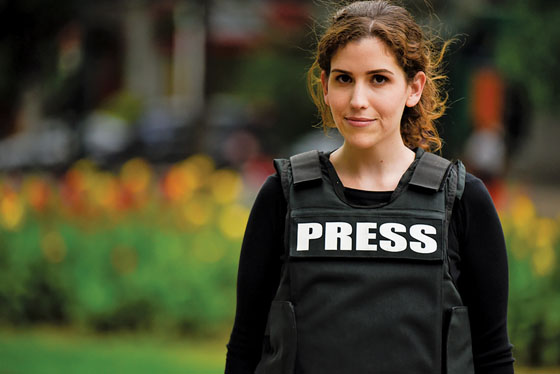President’s Letter: Student Publications, Editorial Autonomy
“Reading the morning newspaper is the realist’s morning prayer,” wrote Georg Friedrich Hegel. “One orients one’s attitude toward the world either by God or by what the world is. The former gives as much security as the latter, in that one knows how one stands.” When the philosopher wrote this around two hundred years ago, the press was beginning to exert a much greater influence on politics and culture, on orienting people to the world. Since then, we have seen time and time again that a free press is absolutely crucial for “realists” to “know how one stands.”
Over the past 20 years, we’ve also seen dramatic changes in journalism, thanks to advances in technology. The dissemination of information has become decentralized, even atomized. Each individual can now choose a “morning prayer” according to his or her own taste, as news feeds are curated to fit one’s user profile. This is a challenge—on college campuses and in the world broadly—since reading the news should be broadly educational and not just personally reinforcing. We can’t afford to dismiss as “fake” anything that doesn’t jibe with our views.
Recently we celebrated the 150th birthday of Wesleyan’s student newspaper. The Argus has been informing and entertaining, annoying and educating the Wesleyan community on a regular basis for a very long time. Plenty of Wesleyans who went on to distinguished careers in journalism cut their teeth on our central campus publication. Take Jenny Boylan ’80, today a regular contributor to The New York Times opinion pages (and a distinguished professor of writing): “I’d always wanted to be a writer, but it was at the Argus, at the hands of other students, that I was actually encouraged. I’d spent a lot of time being told ‘No’ up until that point. The students at The Argus said ‘Yes.’ It taught me how to believe in myself as a creative soul.”
Jenny’s experience of learning from her peers would doubtless ring a bell with a great many Wesleyans. Zach Schonfeld ’13, who dedicated most of his college journalism to the Wesleying blog and now is a culture critic at Newsweek, underscores that “it’s crucial for young journalists to have an opportunity to develop their voice and hone their reporting skills without having to worry about page views and layoffs and collapsing revenue models, which is the unfortunate reality of corporate media companies today.”
Back when I was a student, my classmate Jane Eisner ’77 became the first woman to edit The Argus. Jane has gone on to a distinguished career in journalism, and today she is the editor of The Forward. Jane has drawn on her Wesleyan education, including her work at The Argus, throughout her professional life: “I really believe that the best preparation for journalism is a strong liberal arts education. The actual craft of writing and editing stories can be learned later, but fine journalism depends on an ability to analyze complex people and events, to be intellectually curious, and to care deeply about the world. And to be willing to question authority—something Wesleyan taught me!”
A few years ago, our campus was engaged in an intense debate about freedom of the press, and, in particular, whether our campus newspaper was doing enough to solicit work from students with different points of view. In the end, it was not abstract commitments to free expression that made the biggest difference for those who valued our campus news outlets; it was the recognition that a university is a healthier place when its newspapers/blogs solicit input from a variety of sources and engage editors who can make independent judgments.
Campus platforms for disseminating news and opinions have grown in importance as they’ve moved to online distribution, but there is still palpable excitement when students are distributing physical copies of something they’ve put heart and soul into—such as The Ankh, a publication of Wesleyan’s students of color community. Whether online or on paper, student publications tend to take risks; they are often rambunctious, artistic in surprising ways, and occasionally offensive. They are not afraid to challenge readers even as they inform them. In all this one would hope that they represent intellectual as well as racial and ethnic diversity. Campus publications should challenge the status quo, forcing us to recognize how many of our current ideas are just conventional, no matter how “radical” we think those ideas might be. We learn most from newspapers and blogs when they present challenges to our values from outside our comfort zones of political affiliation and personal ties.
Thanks to the hard work of students, and to the guidance of alumni, faculty, and staff, student publications at Wesleyan are demonstrating the value of editorial autonomy while being open to a variety of views and to writers from diverse segments of the student body. Although not everyone’s “morning prayer,” they do help us “orient ourselves to the world.”

